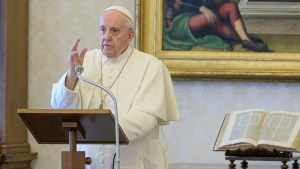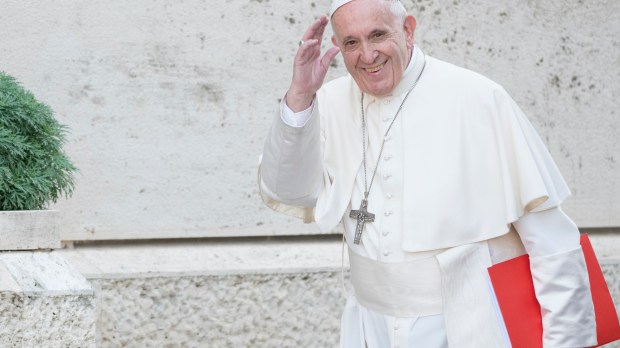The documentary “Francesco,” by director Evgeny Afineevsky, interweaves voices and stories from past and present. It includes exclusive interviews with Pope Francis himself, with Pope Emeritus Benedict XVI, with members of the pope’s family and many others.
In it, Afineevsky highlights the challenges of our time, the urgencies that need answering and the mission of the Church in looking to those who suffer injustices.
The premiere of “Francesco” in the United States is scheduled for October 25 at the Savannah Film Festival. The film is produced in part with the UCLA School of Theater, Film and Television.
The Kinéo Prize
The film premieres on Wednesday afternoon at the Rome Film Festival in the Special Events Section.
Then on Thursday, in the Vatican Gardens, it will receive the 18th Kinéo Prize. The “Kinéo Movie for Humanity Award” is awarded to those who promote social and humanitarian themes. This year, it will be personally awarded by Rosetta Sannelli, the creator of the award, who underlined the film’s historic value. “Every one of Pope Francis’ journeys to various parts of the world,” she said, “is documented in Afineevsky’s work through images and news footage, and reveals an authentic glimpse into the events of our time.”
The Pope and the world today
Evgeny Afineevsky finished shooting “Francesco” in June, in the midst of the Covid-19 lockdown. He uses hugely impactful images to recount various themes such as the pandemic, racism, and sexual abuse. The film deals with the war in Syria and Ukraine as well as with the persecution of Rohingya Muslims.
In the communiqué presenting the work, we read that in the film Pope Francis answers questions “with wisdom and generosity” sharing “moving examples of his life lessons,” relaunching ideals that “can help us build a bridge to a better future and grow as a global community.”
Director Evgeny Afineevsky was nominated for an Oscar and Emmy in 2016 for his film “Winter on Fire” and in 2018 received 3 Emmy nominations for “Cries from Syria.”

Read more:
Pope Francis on why our stories are so important

